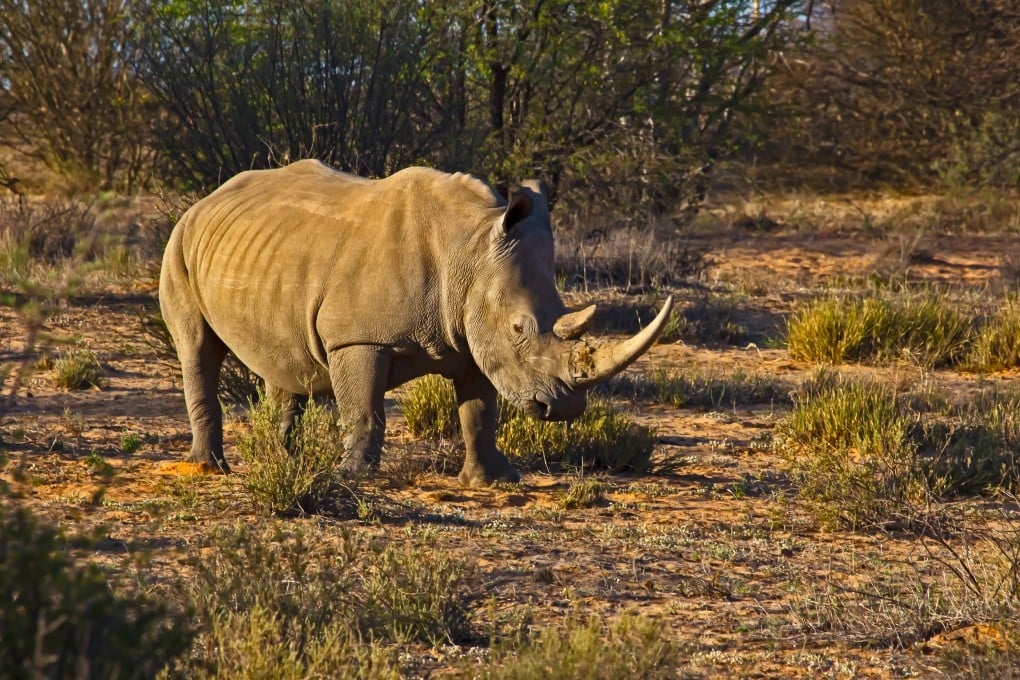Africa’s rhinos face new poaching threat with traditional Chinese medicine touting horn as coronavirus cure
Despite having no proven medicinal value, rhino horn is used as an ingredient in the ‘ibuprofen of TCM’, peddled on social media as Covid-19 treatment

But buckling under global pressure, in 1993, the Chinese government banned the domestic trade and medicinal use of rhino horn. The scientifically innocuous ingredient was largely replaced with buffalo horn, but demand continued and is now being fuelled by claims that it can be used in the treatment of a very contemporary ailment.
Most recently, the London-based Environmental Investigation Agency (EIA), working to expose trade in illicit products, discovered images showing the packaging of Angong Niuhuang Wan – think of it as the ibuprofen of TCM – believed to have originated in North Korea, and advertised on WeChat by a China-based trader showing rhino horn as an ingredient.

Then came the virus. Borders closed, flights were cancelled, and tourism to Africa’s wildlife sanctuaries was put on hold. An African Union study estimates about 20 million jobs are at risk across the continent and governments stand to lose up to US$500 billion in fiscal revenue due to the impact of the coronavirus.
And whatever leaps were made in sustainable tourism, Covid-19 has ensured that poaching is returning, with a new desperate and sinister twist: African animal parts being promoted on social media, such as the Angong Niuhuang Wan on WeChat, are being advertised as a cure for Covid-19.